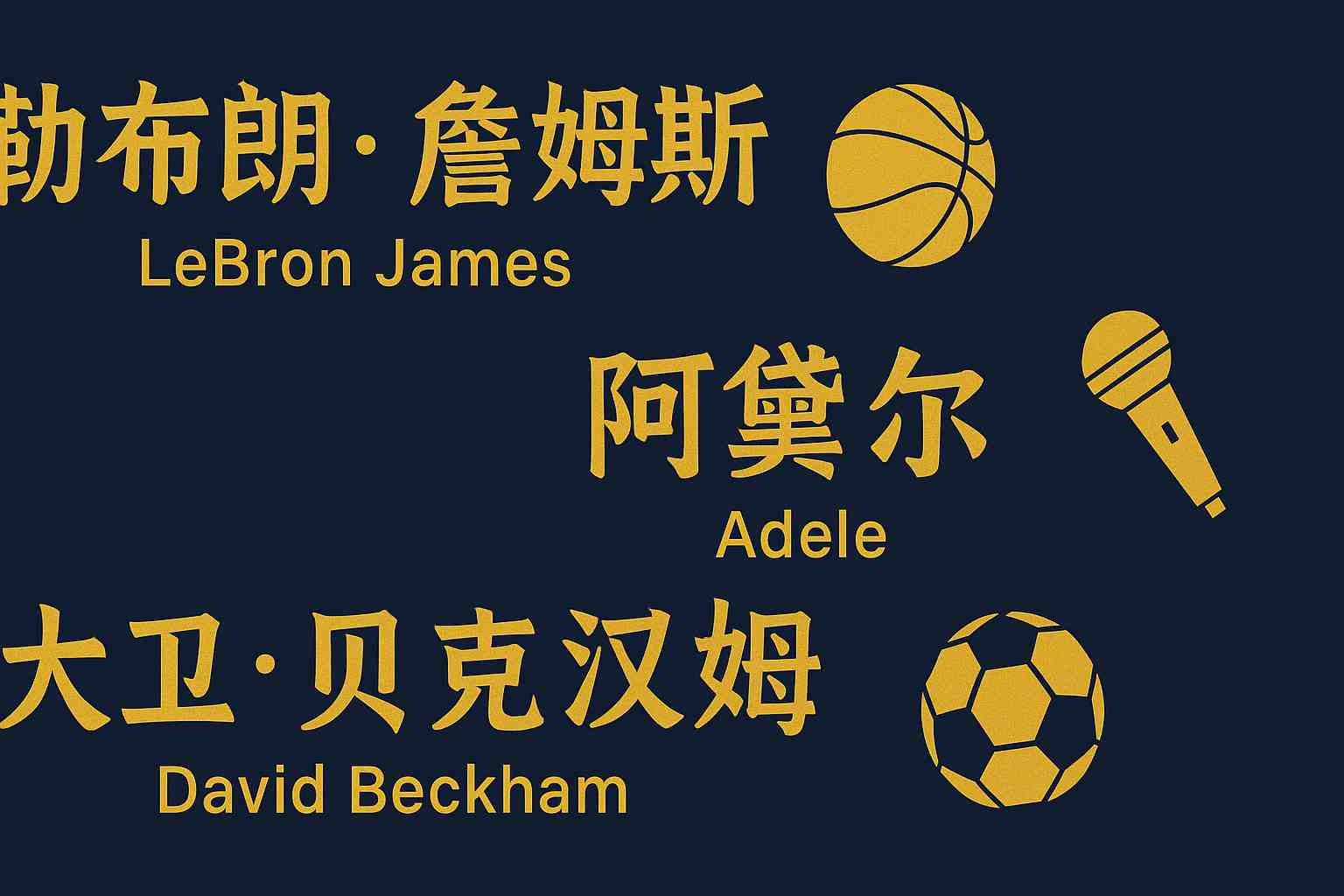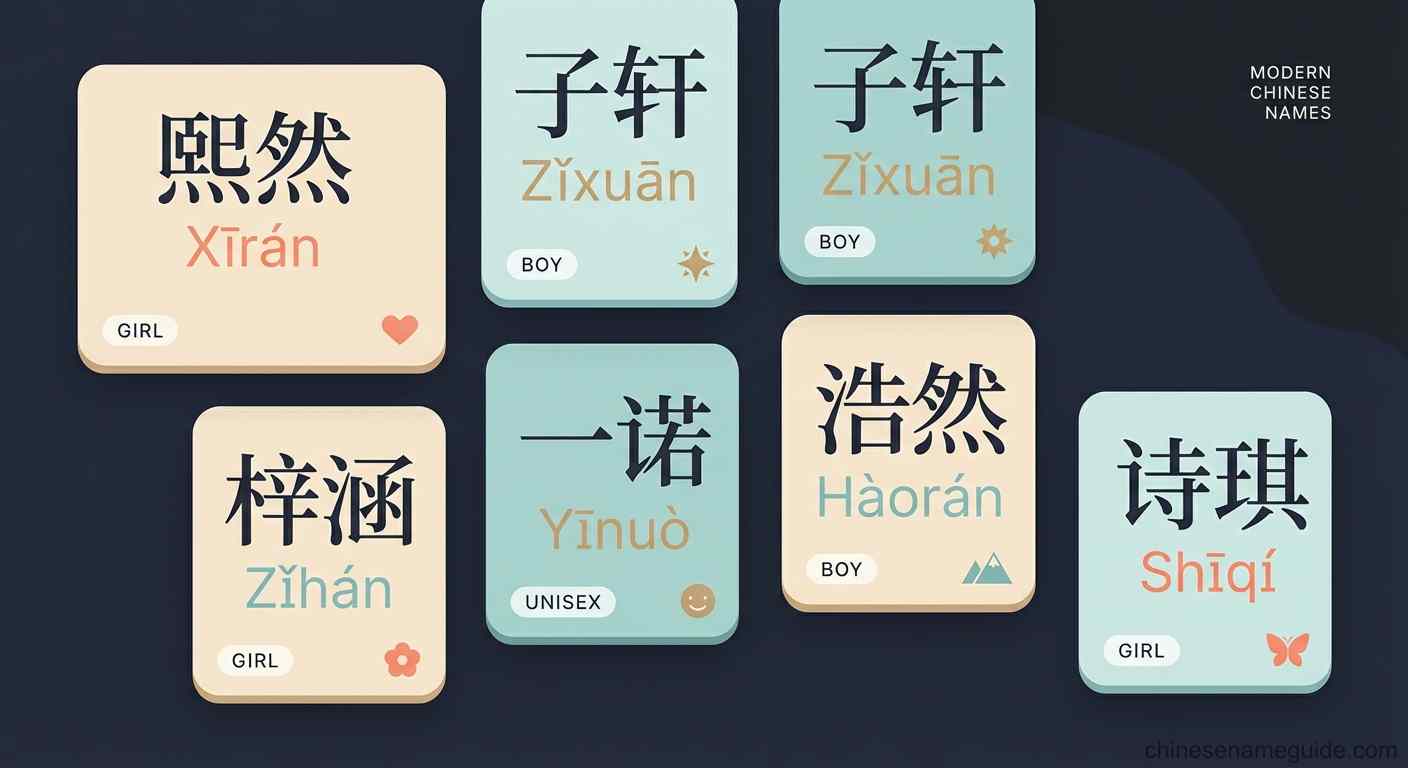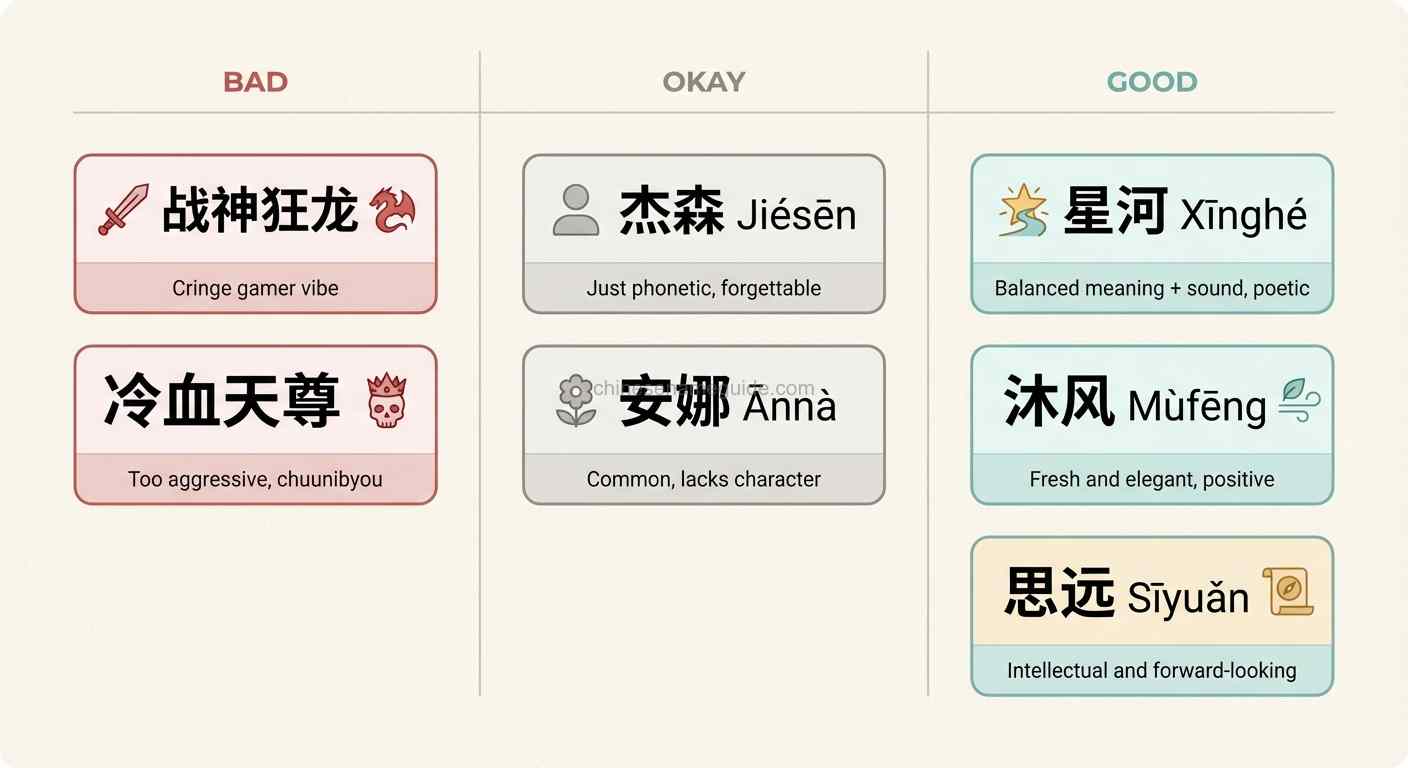
Celebrity Chinese Names: Stories Behind the Fame
Discover the meanings and cultural significance behind the Chinese names of international celebrities and how they were chosen.
Discover the meanings and cultural significance behind the Chinese names of international celebrities and how they were chosen
A Chinese rendering can turn a name into a miniature brand—shaping how 1.4 billion people read, hear, and remember a global star.
| Western Name | Chinese Name (汉字) | Pinyin | Literal Meaning / Cultural Feel | Naming Method |
|---|---|---|---|---|
| Michael Jordan | 乔丹 | Qiáo Dān | 乔 “tall, lofty” + 丹 “cinnabar red; excellence” → echoes “Air Jordan” altitude | Media transliteration (1990s CCTV) |
| Kobe Bryant | 科比 | Kē Bǐ | 科 “division / science” + 比 “to compare” — short, punchy, easy chant | Phonetic + two simple characters |
| Taylor Swift | 泰勒·斯威夫特 | Tàilè Sīwēifūtè | Phonetic string; fans nick-name her 霉霉 (Méi-méi) “Lucky-unlucky girl”, becoming meme culture | Media transliteration + fandom slang |
| Lionel Messi | 梅西 | Méi Xī | 梅 “plum blossom” (resilience) + 西 “west” — poetic & directional | Phonetic with auspicious first char |
| Benedict Cumberbatch | 卷福 (nickname) | JuǎnFú | 卷 “curl” (Sherlock hair) + 福 “blessing” — friendly, meme-ready | Netizen-invented alias |
| Marvel (brand) | 漫威 | MànWēi | 漫 “comic” + 威 “might” — semantic match & phonetic rhyme | Official brand localisation |
How these names emerge
Phonetic transliteration (音译)
Goal: keep pronunciation recognizable.
Rule-of-thumb: 2–3 characters, all positive or neutral.
Semantic enhancement (意译+)
- Replace or tweak characters to add good connotations (e.g., 乔丹 instead of 卓登).
- Brands often do this for marketing—Marvel → 漫威.
Fan-made nicknames (二创)
Online communities coin playful aliases (卷福, 霉霉) that sometimes eclipse the official version.
Government & media gatekeeping CCTV sports anchors and movie import boards standardised many names in the 1990s–2000s, creating de-facto “official” versions.
Why a good Chinese name matters
- Memorability — two or three punchy characters outperform a long phonetic string.
- Cultural resonance — auspicious characters (福, 龙, 梅) evoke positive feelings.
- Brand protection — registering the right Chinese trademark prevents pirate versions.
- Fan engagement — nicknames foster community identity and drive hashtag traffic.
Tips for choosing or evaluating a Chinese rendering
- Aim for ≤ 3 characters unless brand length demands more.
- Avoid negative homophones (e.g., 坑, 病, 死).
- Check domain & trademark availability.
- Test tone flow—Mandarin is tonal; awkward contours hurt recall.
- Consider cultural symbolism if meaning translation is possible.
Related Articles

How to Pronounce Chinese Names with Pinyin: A Practical Guide for Non-Native Speakers
A practical guide to pronouncing Chinese names written in pinyin, covering name structure, pinyin basics, common patterns, and practice tips for non-native speakers.

Modern Chinese Names: What Kids Are Actually Called Now
Forget Li Ming and Wang Wei. A ground-level look at what Chinese kids are really named today, what those names signal, and how to sound modern without sounding ridiculous.

Why Most Chinese Name Generators Are Dangerous (Don't Get a Tattoo Yet!)
Before you tattoo a ‘cool Chinese name’ or launch a brand with it, read this. A brutally honest look at how most Chinese name generators actually work — and why they can quietly ruin your skin, your brand, or your reputation.